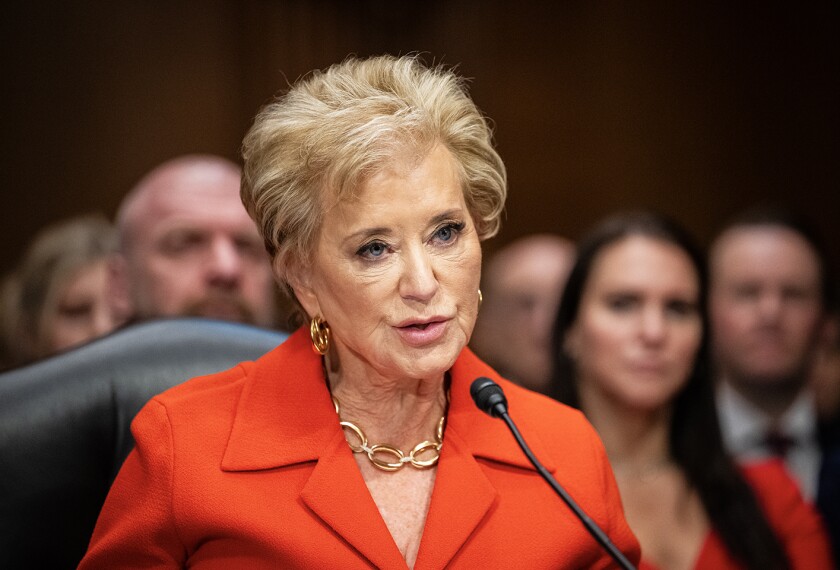Over the last few weeks, I’ve been asked repeatedly about U.S. Secretary of Education Betsy DeVos. Friends and neighbors who know that my work involves charter schools have said, “You must be happy.” But the truth is, I am worried about the future of charter schools.
I have little doubt that there will be more schools with the word “charter” in their names in the years ahead. Yet I have serious concerns about whether these schools will be faithful to the principles upon which the charter school philosophy is built: providing parents with the ability to choose a good school for their child, giving educators more freedom to innovate, and holding schools accountable for student learning. When all three of these principles—choice, autonomy, and accountability—are practiced in concert, we have seen that charter schools can change lives.

Over the years, these principles have created odd bedfellows. In state legislatures, the loudest champions of charter schools are often political conservatives who are attracted to the concepts of choice, competition, and deregulation. But in many communities, the charter school movement is led by liberal social-justice advocates who see an opportunity to help millions of low-income black and brown students get a quality education that the traditional system has failed to provide for generations.
For the last 25 years, in what may be the last outpost of bipartisanship in our country, these odd bedfellows worked together to create the nearly 7,000 charter schools that are serving more than 3 million children, according to estimates from the National Alliance for Public Charter Schools. But now that coalition is splintering.
Tensions simmered for a few years before coming to full boil last spring. Many liberals attending the 2016 NewSchools Summit celebrated the conference’s elevation of diversity, with teacher-blogger Marilyn Rhames noting that it “echoed sentiments of the Black Lives Matter movement.”
The conservative-leaning Thomas B. Fordham Institute’s Robert Pondiscio, however, saw it differently. In a blog post, he warned that the left was trying to “push conservatives out of education reform,” and he proclaimed the collapse of the “informal agreement” between liberals and conservatives in education reform. Pondiscio’s words sparked a summer of education reform bloggers on both sides of the debate scolding each other for being insensitive and jeopardizing the fate of reform.
For better or for worse, Secretary DeVos has become the personification of the charter movement in the eyes of the general public."
Under a new administration, the gulf continues to widen. For better or for worse, Secretary DeVos has become the personification of the charter movement in the eyes of the general public. Liberal charter school supporters are terrified that charter schools will now be associated with Donald Trump, Betsy DeVos, privatization, and for-profit companies. “God save us from our friends,” wrote Steven Zimmerman of the Coalition of Community Charter Schools, in New York, in a blog post lamenting DeVos’ “market based” reform agenda following the election.
On the other hand, many conservative charter school supporters (but not all) are delighted. Jeanne Allen of the Center for Education Reform has treated the Trump ascendency as an opportunity to push hard for less oversight of charter schools. Since the election, she has thrown her support behind DeVos and accused other charter school advocates of being too regulatory. Other conservative advocates go even further, arguing against virtually any form of charter school accountability to anyone or anything other than market demand. In their mind, failing academic outcomes or gross mismanagement of public funds are not the business of government and taxpayers.
This free-market approach to charter schooling embraces the principles of choice and autonomy while gutting accountability, but true supporters of charter schools will not abide by this co-optation of what it means to be a charter school. Those of us who have seen generations of urban school districts mismanage public funds and fail to provide a quality education to children will not support efforts to cast the same plague on charter schools.
At the same time, we reject the burgeoning idea that charter schools would be better if forced to follow all the same rules as traditional public schools. This idea has led to efforts to infringe on charter school autonomy, including the recent calls for blanket regulations on discipline practices in Washington, D.C., which true supporters of charter schools will not allow. Those of us who have seen the power of giving schools flexibility will not stand by and watch charter schools stripped down to look no different from the traditional schools we sought to replace with something better.
For charter schools to succeed, educationally and politically, we must be faithful to all of the principles upon which the charter idea was built, not some at the expense of others. Charter schools without autonomy have no ability to innovate and excel. Charter schools without accountability will simply become a parallel system of failing schools.
If we want to create much-needed better educational options for kids, we must recommit to the original principles that have enabled many charter schools to achieve excellence. Then, our conversations with friends and neighbors might be less about who’s at the helm of the U.S. Department of Education and more about how charter schools are providing a good education to millions more children.






